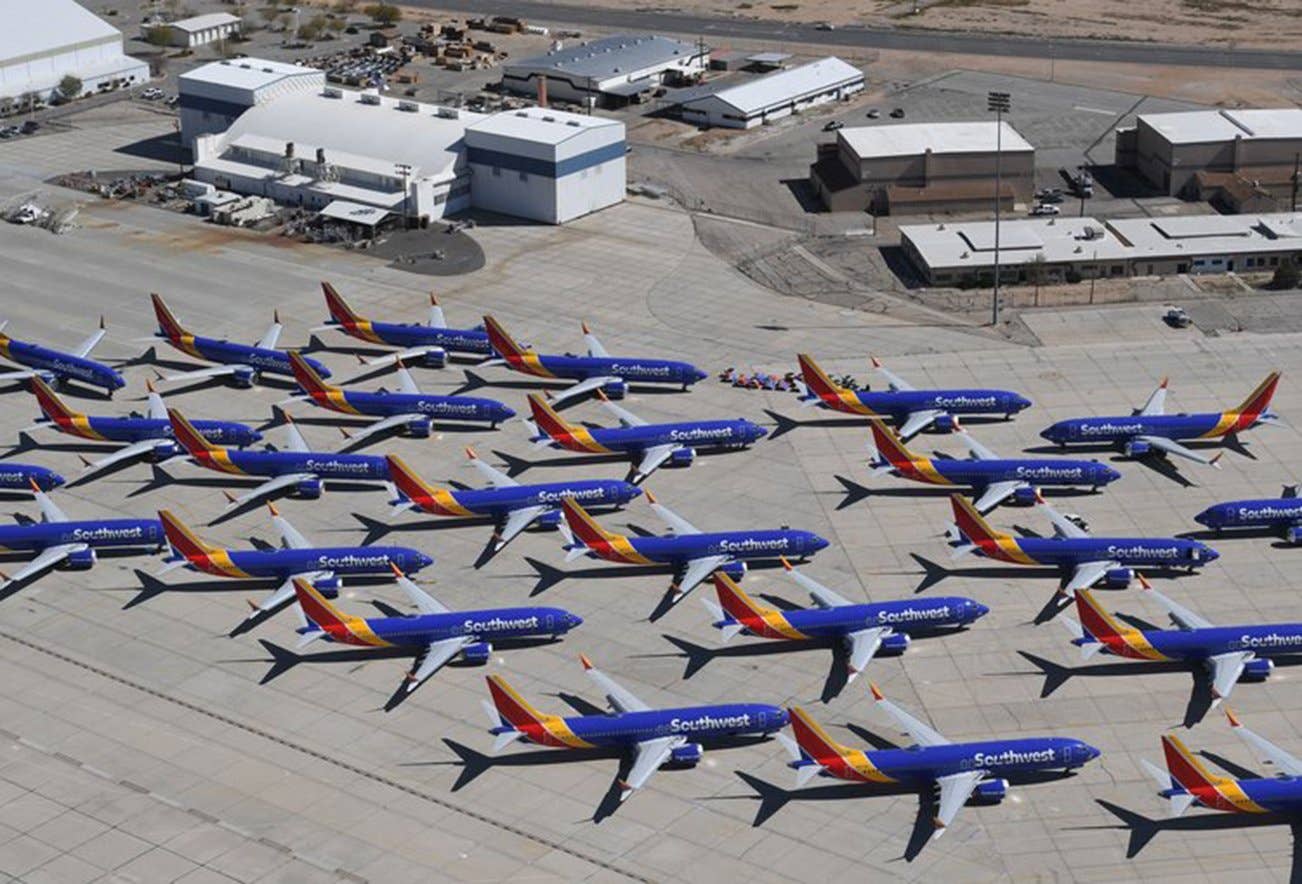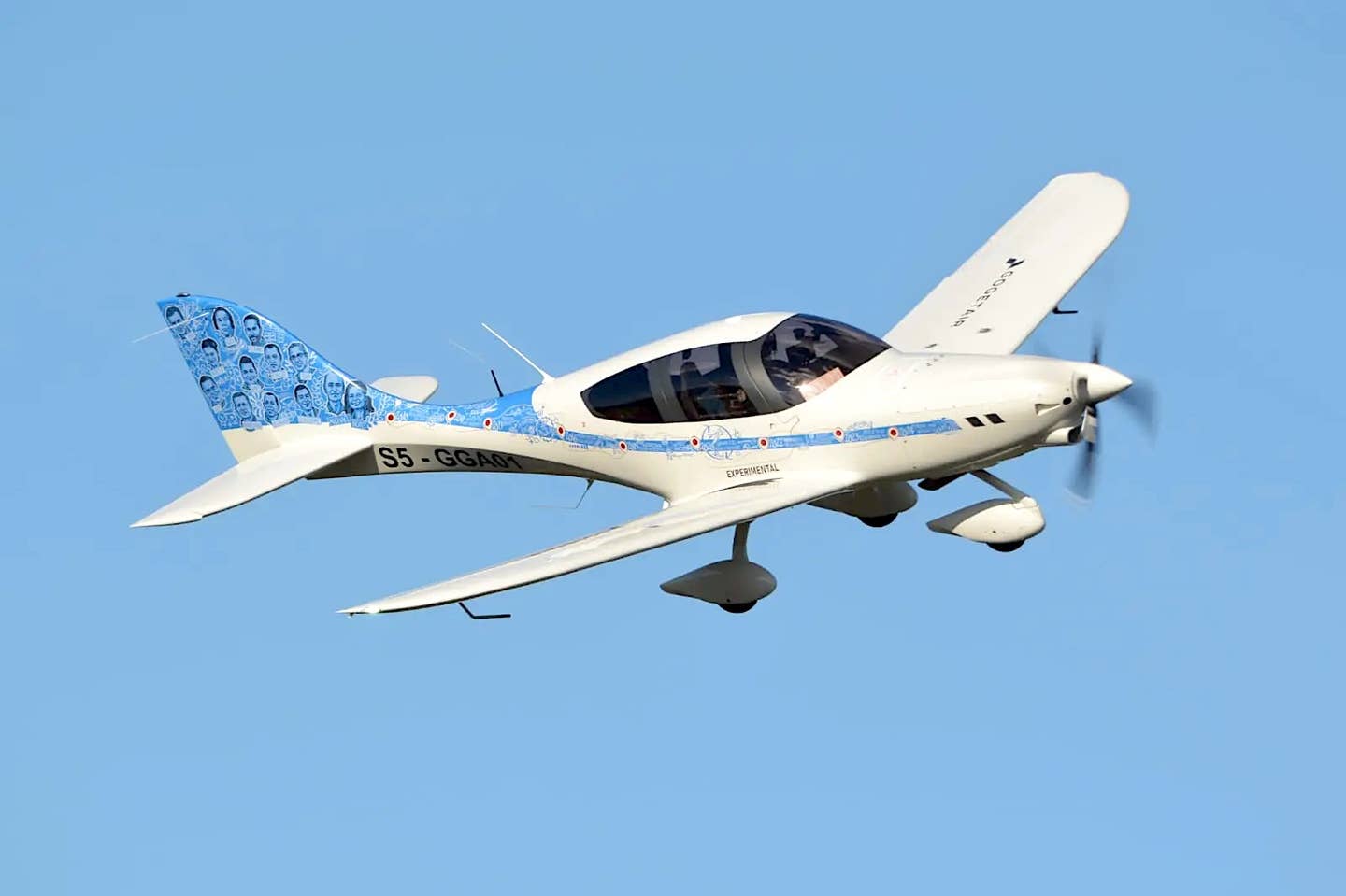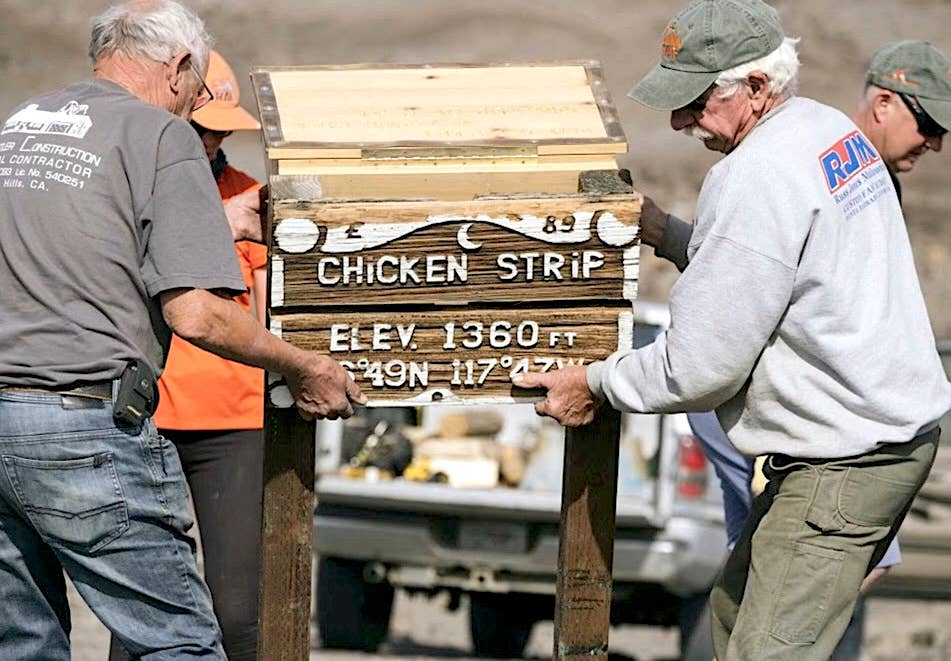Will Boeing Ever Dig Itself Out?
If the file is ever closed on the 737 MAX fiasco, I have to wonder what kind of a grade Boeing will get for its overall handling of the crisis. Anyone vote for an A-minus?

When Boeing finally digs itself out of the self-inflicted PR disaster of the 737 MAX story—if it ever does—I wonder how it will be graded on handling the crisis. I wonder, but I'm kinda disposed to think it will become a textbook case of how not to behave in the searing glare of catastrophic bad publicity.
I further wonder what the people who buy Boeing's airplanes—Southwest, Delta, United and a host of foreign airlines—must have thought when, earlier this week, CEO Dennis Muilenburg insisted that the MAX line was designed properly and met certification requirements. This, of course, ignores that 370-plus MAX airplanes remain grounded, awaiting a software upgrade to the MCAS stability system. Muilenburg said Boeing's review found no "technical gap or slip" in the MCAS software design.
In a factual sense, Muilenburg may be correct. But until all the investigations are done, including congressional inquiries, the question of certification fidelity remains open. Boeing will face a tsunami of lawsuits and not just from the families of the 346 victims of two MAX crashes, but from airlines losing revenue on their now-parked expensive assets. They'll wish to be made whole.
What must have grated is Muilenburg's implication this week that Boeing certified the airplane assuming that pilots could handle any anomalies with standard accepted procedures. He said pilots flying the crash airplanes didn't "completely" follow procedures in place for runaway trim events, including amplified procedures following the Lion Air crash. Again, from what's known at this juncture, that appears factually true.
Yet, according to a CNN report, Boeing never flight tested a failure scenario in which the single angle-of-attack indicator fed erroneous data to an MCAS subsystem capable of rolling in full nose-down stabilizer trim, a powerful potential control input pilots weren't aware of. "Apparently, we missed the ramifications of the failure of that AoA probe," a former Boeing test pilot told CNN.
Before the first crash of Lion Air 610 last October, pilots hadn't been specifically informed of MCAS's existence, although Boeing didn't try to hide it. The aircraft manufacturer said that MCAS was not a significant enough addition to the 737 to merit mention in the flight crew operating manual, much less specific training. Along with new software that incorporates data from both AoA sensors, pilots will now get ground training on MCAS operation and potential failure modes.
Boeing did some fast pedaling on another sticky point. Southwest Airlines revealed this week that Boeing misinformed the airline about the functionality of AoA disagree lights that warn the pilots of anomalous AoA data. Southwest said Boeing's documentation indicated the disagree lights were functional on the airline's MAX airplanes, but it learned only after Lion Air that this was true only if the pilots' PFDs were equipped with direct angle readouts. Southwest installed these only after the Lion Air crash.
Whether this was an innocent omission on Boeing's part or willful obfuscation is a question that may be answered in court or in the ongoing inquiries. Either way, in the Part 25/121 world where every t is crossed and i dotted with logged revisions, it strikes me as sloppy attention to detail.
And speaking of detail, Muilenburg reset the clock on why MCAS—Maneuvering Characteristics Augmentation System—was there in the first place. Early press reports—including quotes from Boeing—described it as a stall-protection system that automatically added nose-down trim at high angles of attack and load factors when the airplane was being hand flown with flaps and slats stowed.
But this week, Muilenburg said MCAS was never that. It was added to the airplane as stability augmentation at the extreme corners of the CG envelope, at light weights and aft CG. It was intended to improve control feel in circumstances where light pitch forces would normally be encountered.
In a serial story like this, journalists quite naturally resort to repetitive shorthand to describe a technical element. In this case, it was: MCAS, a stall-protection subsystem, or words to that effect. We used it in stories and so did every other media outlet. We did this for five months following the Lion Air crash, but Boeing never bothered to issue a statement clarifying it.
Should it have done so? I'm not sure, but I find it curious that it did not. It makes me further wonder if even Boeing had a good grasp of what MCAS was supposed to do and/or how it would do it. Maybe it's just another item on a long list of things the company will have to explain to its customers and the flying public if it's to restore the luster to the Boeing brand.
Note to Readers:No, it's not something you said. Because of persistent denial of service attacks against AVweb, we're moving the site to another platform. The commenting section will be unavailable for a time. We apologize for the inconvenience, but the site will be better for it in a week or two. In the meantime, if you have a comment,emailus and we'll append it to the blog.
The first line of this story asks if Boeing will ever recover from their PR Disaster. Losing 2 aircraft and killing hundreds of passengers because of a problem with the design, certification and training provided for the 737 MAX 8 is far worse than a PR Disaster. The disaster was their decision to deliver a plane that requires heroic actions from the flight crew to preclude killing everyone on board. Their PR missteps following the two accidents complicated the issue, but Boeing's failure to handle the press effectively is the least of their problems.
Gary Lanthrum
Two great articles in particular this week: the "Possible Turn" and today's "Grading Boeing". Keep up the wonderful, informative work!
Ron Blum
How much are Boeing paying you? Everything Boeing did was WRONG, right from the design concept of the MCAS system, so how can they get anything more than an F.
Peter Butt
MCAS is an example of computer control being able to override a pilot's control. When we enable the computers to have the final decision have we verified that the data that they're using is accurate? In these cases the pilots were the ones with the right data, but the computers overrode them. How many other systems aboard our new planes( all manufacturers) have the final decision? One last thought, how secure is the data against deliberate intrusion?
As a retired Boeing engineer, I have to admit my interest in all the MAX articles, but I have some criticism too. The way the media has piled on to viciously attack Boeing is reprehensible. The way journalists act is like chickens in a coop - if one bird has an injury or a sore, the others peck the injury until they eventually kill the injured bird. It is the same bird-brain mentality that I now see in the media.
In any other country, Boeing would be a source of national pride. Take Ethiopian Airlines for example. The Ethiopians are justifiably proud of a successful business at home. Not so in America where we tend to jealousy attack anyone who is successful. I am at a loss to explain this thinking that is common in America.
Brian Behrend
"CEO Dennis Muilenburg insisted that the MAX line was designed properly and met certification requirements."
John Patson
Great, even-handed coverage, Paul.
I hope that somewhere along the way, some parties look into the Root Cause(s) of how the737MAX came to evolve. I agree with Ralph Nader when he said: "...Congress bears some very serious responsibility." The FAA has been struggling for funding since before 2000 and not getting it has caused the loss of real engineering depth in the intervening years. Then there's the stretching of the 53-year-old 737 Type Certificate to avoid certification expense of a new airplane.
Later, probably with Boeing lobbying pressure and urgency to quickly certify new models, Organizational Delegated Authority came into existence. This ability to self-certify was touted by Boeing management as a "competitive advantage" as far back as 2010.I think that led to allowing failure modes to slip through (e.g. battery fires) which grounded the 787. The 737MAX is another example.
Greater than either was the philosophical shift to be "more like Airbus," giving the computer control over the pilot with envelope protection using MCAS in a surreptitious way.
Possibly related, there was a minority stockholder proposal to stop stock buybacks. This was voted down, and apparently Boeing will spend $20B this year. I wish they would spend it on R&D.They may also need the money for the lawsuits, which Boeing apparently intends to get moved to foreign courts where the awards are lower. I hope the planned congressional hearings will encourage use of the U.S. legal system as this would provide better transparency.
A. Tom Jensen
I'm still at a loss to understand why the crew didn't simply turn off the electronics and fly the airplane. Is that too much to expect of a crew?
John Hodges
The bad PR was inevitable, given the scenario of two crashes with near-identical causes, both attributable to engineering management.
Using FAA's establishment of Organizational Delegated Authority (ODA) as a cause of weak oversight is really tangential. If the Certification Engineering Group at Boeing were transformed into FAA employees, would the outcome have been any different?
Delegating low longitudinal stability, nose-up pitch with power, and clean stall avoidance to a computer programmer is just a really bad idea. Besides the current fatal results, the mindset which enables automation at all levels "because you can" is allowing the foolishness of inserting a 200 hour copilot into the airplane on the basis that he's good at computer games.
And was the value of selling a better specific range by substituting software for a larger horizontal stab really worth it?
Bill Davies
"The disaster was their decision to deliver a plane that requires heroic actions from the flight crew to preclude killing everyone on board. "
~ Gary Lanthrum
"MCAS is an example of computer control being able to override a pilot's control. When we enable the computers to have the final decision have we verified that the data that they're using is accurate? In these cases the pilots were the ones with the right data, but the computers overrode them."
~ Joe Phillips
What is heroic about turning off two switches to stop runaway trim? And a computer can override a pilot only if the pilot doesn't turn off the computer.
Now, there are definitely problems with the initial implementation of MCAS, and Boeing should bear the brunt of the blame. Its failure shouldn't put the plane into an abnormal situation. But... the prior crew to the Lion Air crash flipped the switches and flew the plane normally after that. Were they superhuman? Doesn't that successful outcome kind of prove what Boeing has said all along? And why is it U.S. and European crews haven't had this same disaster befall their airlines, despite flying far more flights for years?
I suspect that when the final report(s) come out, the problem will not be as entirely one-sided as much of the press (and comments) seem to believe. These accidents will likely shed some light on the fact that not everyone who sits in the pointy end is equally competent and/or well-trained (Asiana Flight 214, for example). Provided, of course, the local governments release all the data. Just remember, these accident investigations are not being driving by an independent body like the NTSB. Witness the differing conclusions as the investigation progressed on EgyptAir Flight 990.
Alas, I suspect my comments will be dismissed as racist or jingoistic. Or, at best, heartless. That may be the case, despite my best intentions. But, if the only focus is on the hardware and not the wetware, the problem will occur again, just with a different failure as the trigger.
Finally, until the final report(s) come out, all of these comments (my own included) are just opinion and speculation.
Kirk Wennerstrom
Sure they will ... once they get their collective heads outta their butts, stop "hacking-up" a 50+ year 737 type certificate, and stop trying to re-invent the 757.
Phil DeRosier
The MCAS story may be the most public, and by far most consequential, representation of larger and more wide spread issues at Boeing. Add in the recent action by the Air Force in twice halting deliveries of the KC-46 because of factory FOD issues and similar complaints for 787 FOD issues in the South Carolina plant. Had to imagine that coming from an AS9100 Quality Organization, especially happening again after corrective actions. The WSJ had an interesting article about the Boeing factory test pilots not being in the engineering loop for the MCAS and were barely aware of its existence during development.
I am still trying to understand how any safety review of an automated system (MCAS) with a single point of failure (single AOA configuration) would allow it to exert any authority on a flight control surface. There is certainly enough other data available from other sources to cross check the AOA value for reasonableness.
I once admired Boeing's CMMI Level 5 development process, I am now wondering if the process has become an end to itself where common sense and experience no longer need apply. Perhaps it is time for Boeing to start looking at why these internal breakdowns are occurring and fix them along with the MCAS software.
John Salak






